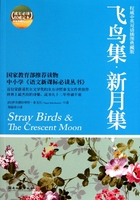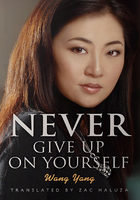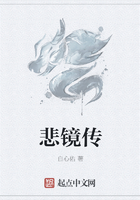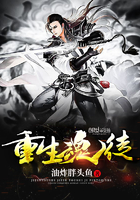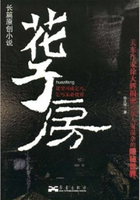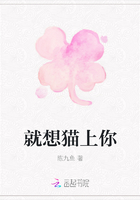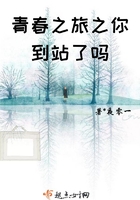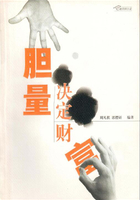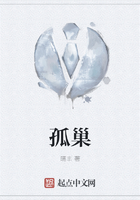The First Letter to Daili by Ba Jin
THESE SEVEN LETTERS are genuine works of a young Ba Jin, written in fountain pen, and unlikely to have been published in the past. The recipient's address is consistent throughout as "No.20 Slope Road, Taiyuan City, Shanxi" , with all of the letters addressed to "Ms. Zhao Daili" . The seven original envelopes are intact, and two of them bear several stamps from the period of the Republic of China, one of which bears the portrait of Sun Yat-sen and the other, a portrait of Chiang Kai-Shek. The postmarks are faintly visible, containing the names of cities such as "Pinghu" , "Shanghai" , "Beiping[2]" and "Yangqu Taiyuan" . The date can be identified as "the twenty-fifth year of the Republic of China" , which is 1936. Ba Jin marked the envelope with either "Ordinary Express" or "From Li in Shanghai" (Ba Jin's family name was Li). The seven envelopes and seven letters were separated when I received them, thus careful sifting was required to put them in order. The fact that Ba Jin signed the letters with only month and day, and without a specific year made the task of arranging them more difficult, and I had to rely on inference. I believe these seven letters span several years; the accurate ordering of the letters in chronological sequence with their corresponding envelopes will therefore depend on careful verification by experts.
The thing that I regard as most important is the content of the letters. The writing in these seven letters adds up to several thousand characters, and the contents are rich. Though I have never personally been involved with the study of Ba Jin or his works, I insisted on salvaging the letters for fear of losing them, so that they could be used as source materials for researchers studying Ba Jin. Previously, I collected things purely out of personal interest, but this time it was for the benefit of society, for people who love and study Ba Jin, and for my own literary undertakings. For these reasons, I took wholehearted responsibility. In the past, old ladies who lived in the remote Taihang Mountains were superstitious, cherishing paper with writing on it—probably out of an awareness of and respect for culture. Ba Jin himself was the first writer to advocate the construction of the Museum of Chinese Modern Literature for the protection of cultural and literary relics. He even considered the completion of this Museum "the last project of his life" , saying "I would like to dedicate the remaining time and energy of my life to the Museum of Chinese Modern Literature" . Seeking to resolve some difficulties, he further wrote to the General Secretary of the Central Committee of the Communist Party of China on behalf of the museum, and he took the lead to donate the first part of the start-up fee.
Despite enduring the elements for seventy years, the letters remained largely well preserved and were bound to become treasures. In the deep of night, savouring each word under lamplight, it was as if an author of previous generations had returned to once again quietly narrate his heart's work to us. Except for the first letter, which Ba Jin signed off with his full pen name "Ba Jin" , the rest of the six letters are all signed "Jin" , evoking a feeling of intimacy. Even though at the time, Ba Jin was only writing for Daili, through the eyes of the present, he was actually writing for all of us, for all his readers.
It's quite probable that the name Daili wasn't her original name. It is likely the name of a female reader, who, seeking a new life, a new spirit, chose for herself a pleasant-sounding name, in the same way that present-day internet users may choose an online name for themselves. We can guess, in Taiyuan Prefecture, under the government of Yan Xishan[3], as young woman thirsty for new ways of thinking read Ba Jin's works and felt sympathetic towards them, that the heart of this young woman named Zhao must have raced with excitement. Dissatisfied with the suffocating atmosphere of the traditional Chinese family, she grew fond of writing letters to authors using this romantic-sounding name. She displayed some talent, and her letters are both honest and well-written; otherwise, the young Ba Jin would not have continued to reply to a reader's letters, sending seven letters in total. At this time, Ba Jin was nearly thirty years old, and he was not yet married to Xiao Shan, so the letters are properly situated either during his courtship or early in his relationship with Xiao Shan. In fact, Xiao Shan was the same as Daili: they had both read Ba Jin's works, and both used literary letters as a means of approaching him.
The first letter that Daili received was on thick, crisp paper, and printed on the letterhead were three rows of red characters, the characters in the first row being larger than the others. The letterhead read "Culture Life Publishing Company" , which was identical to the address printed on the envelopes in English and Chinese. The next line was smaller, reading "No.20 Kunming Road, De'anli, Shanghai" . The final line read "Telephone: 51560" . It was this letter, the first letter, which first hit my eyes. Given that high quality forgeries exist in the antiques market, I didn't take the letters seriously at first. It was only after sighting the envelopes, the letters, the postmarks, and stamps that I began to consider them as genuine. At that time, hearing that these were old letters written by Ba Jin, I still didn't truly believe it. Then I recalled when Ba Jin had returned from Japan, he had become editor in chief at Culture Life Publishing Company, as well as being head editor for Liter-ature Monthly, a joint undertaking with the writer Zhang Jinyi and others. Thus, carefully studying these letters, yellow with old age, I concluded that they would be extremely difficult to forge.
Afterwards, seeing all seven letters, I noted that five of them were on Culture Life Publishing Company letterhead, and one was written on "Kaiming" stationery. Another was on Literature in Translation letterhead; the paper was thicker and brittle with age: this letter also had the most damage to the text. On top of these was an advertisement in colloquial language, "Introducing Foreign Literature and Art Monthly" , which bore the address "No. 12, Lane 286, Route Tenant de la Tour, Shanghai" and "Telephone: 74891" . From this, all the letters could be classed as being genuine—in the language of the trade, "old and authentic" . More crucial, however, was the handwriting and form of the characters. Among all of Ba Jin's handwritten books and letters, there are still many traditional characters. Another person would have had almost no means of imitating his style apart from photocopying—to write in that manner by hand would have been impossible. In the Chinese antiques trade, this is called being "verifiable at a glance" and is also known as being an "open gate" : the meaning is as if you can open a gate and see mountains—there's no need for doubt. In fact, it would have been impossible to forge the content of the letters: nobody could successfully fabricate Ba Jin's unique ideological world. The first letter was written horizontally from start to finish on two pages. The remaining six letters were all written in vertical columns from right to left.
Now, we may start by reading the first letter. In the opening line, Ba Jin addresses Daili as "Madam" —Ba Jin was excessively respectful towards his readers. For the rest of the text, where an ellipsis occurs, it is because writing was lost or not clearly discernable.
April 20, midnight.
Madam Daili,
I received your letter, thank you for your good wishes, you must have spent considerable time in writing to me. Your letter brought me some comfort and inspiration—I certainly don't blame you. You say you read my book The Miners when you were just twelve—that was too early. Knowing this made me uneasy—I didn't want those bitter images to hurt your soul as a child. You read Family when you were sixteen—I know you would have liked it, because the protagonist is young, like you.
He had a pure heart, a firm belief in justice, loving all those in need of love and detesting artificial traditions that don't accord with human nature.
You said you were familiar with Qin[4], I think you and your sister can probably see something of yourself in her. Don't say that you haven't had an opportunity set your eyes on Qin; you are also a type of Qin. She has her weakness, but they are human weaknesses. Right now, I'm revising Family, and before long I'll have to be writing The Group. Last year, I wrote a few pages, before once more putting up my pen. Therefore, unless it's the case that you want me to lay aside my pen forever, you must be happy to hear this news.
I feel that I have a lot to say to you; for instance, about life, about essays—all things that require a longer conversation. However, please forgive me, I'm always busy, my head's all over the place, so I won't be writing much. Everyday, I have to write … of letters, and I have a reputation as a poor letter writer.
There's no need to "respectfully" me, I'm an exceedingly ordinary person, and also naive, to the point of being quite childish.
Best wishes,
Ba Jin
At the end of the letter, Ba Jin had added a post, "In the future, letters can be sent directly to Culture Life Publishing Company" . From this we can know there was a high probabilitythat when Daili had sent the letter, it had arrived at some other place, and that Ba Jin wished to receive new letters from Daili.
I found it difficult to assess whether this letter had any research value, apart from feeling in many places that the author had deep compassion for his unknown readers. The words "Loving all those in need of love and detesting artificiality, thereby not conforming to the traditions of mankind" , are concise but powerful. In 1935, Ba Jin's Reflections on a Life of Writing, this sentiment had been expressed in an essay, "All old ways of thinking, artificial systems which obstruct society's progress and human development, and all forces which destroy love, these are my greatest enemies." This statement was expressed succinctly in the first letter to Daili. After 1949, Ba Jin amended the expression "artificial systems" to "unreasonable systems" . While I had thought that the original expression was more precise, more penetrating: under the rule of man, social systems must reform! Reason and unreason are different co-ordinates, and whether or not things are reasonable is, in the end, a different matter …
Ba Jin's heart was compassionate and wide—he felt uneasy about even his own work, The Miners, worrying that the bitter images may have injured the souls of children.
The book The Miners, which is referred to in the letter, is one of Ba Jin's early novellas, drafted in 1931. It draws on the hardships of the community of underground workers. I have not read the original text of The Miners, and I only know it through the research documents of the likes of Li Cunguang and Chen Danchen. In this period, Ba Jin had already visited Changxing's coal mines, going deep into the mineshaft's working face, experiencing the labour of the furnace workers. Not long before he had entered the shaft, there was a gas explosion in the vicinity, which killed fifteen miners: a scene of misery. After this, a young man from Yunnan named Huang Zifang who had studied abroad in Japan described the tragedy of the Yunnan Gejiu iron ore mine's sluiceworkers in detail to Ba Jin. He told of how miners were tricked into the mines for five silver yuan, labouring harder than oxen and horses in the dark mine shaft where no daylight reached, where their tragic lives resembled a war of resistance: they had organised a spontaneous life-risking escape attempt, but were again suppressed. Ba Jin wroteThe Miners out of grief and anger at these experiences. The tone of the work is one of melancholy and despair. He opposed the violence of the authorities and denounced violent oppression, viciously attacking the rise of the capitalist order of the day from an anarchist revolutionary stance. The Miners, and the book Germination which was completed not long after, are Ba Jin's two tear-soaked works which reflect the life of underground workers. In the early spring of the following year, Ba Jin reflected on his writing of the previous year, writing, "Struggle, loneliness, darkness and disillusionment: I passed a year in the desert of the human heart" . Come autumn, Ba Jin travelled north, staying temporarily at Shen Congwen's* residence in Qingdao, and it was there that he wrote the forward toThe Miners. In the forward, Ba Jin stated, "I have taken a dying system and set it out before people, pointing so that people may see: this is a scar, this is blood, look!"
Unfortunately, this tragic work, The Miners, was unexpectedly read by a twelve-year-old girl from Shanxi—Zhao Daili. Ba Jin was uneasy about this, apologising in his letter: I didn't want those bitter images to injure your soul as a child.
During the Cultural Revolution, The Miners was designated as a blacklisted text slandering the working class, and it was harshly criticised. In Ba Jin's later years, Ba Jin would write a book about the creation of The Miners.
The letter spoke of The Group, on which Ba Jin had paused work, but would soon continue writing—this was the future book that was alluded to in 1931 in the afterward to Family. At this time, Ba Jin had already stated that The Group would be book two of the three-part Turbulence: A Trilogy. Ba Jin had made up his mind to "write a history of society, because my mentor had also gone from home out into society" . From this letter it can be seen that the novel that was to be called The Group in actuality consisted only of the beginning, which was written before it was abandoned by the author. Having consulted the available historical materials, no where is there any reference to a book called The Group.
From Li Cunguang's research it can be known that before Ba Jin published this prior notice of a coming book, he actually already had a feeling of group camaraderie: even in a 1936 letter to Daili, he was conscious of it and still recalled it frequently. This is because after 1928, the south part of Fujian province, especially Quanzhou prefecture, became an active area for young anarchists. Scores of "new youths" such as Wu Kegang, Li Ni, Lu Li and Lu Yan had established a new school there for popular education, disseminating the anarchist revolutionary standpoint, and organising workers in the battle against capitalism. Among them, Wu Kegang, who had been Ba Jin's classmate during their study abroad in France, took on the role of high school principal. Ba Jin had always wanted very much to visit Quanzhou. He had already been there three times: in the autumn of 1930, 1932 and in the beginning of summer 1933. Ba Jin praised this group for its believers and fighters who "had gone from their homes out into society" . This group of youths had "forgotten their own health, forgotten their own household, and they only knew one kind of responsibility" . Hu Jingmin said, by way of analysis, in that year Ba Jin believed that for the ideal of anarchism to be realized in China, first it would be necessary to borrow from the great revolutions of Russia and France, and to launch a campaign of popular violence; second, it would be necessary to borrow the English style "general union strike" to further the battle and increase the power of working people, driving forward the great waves of revolution. Thus, Ba Jin already remembered participating in this type of professional revolutionary life in Quanzhou, and it attracted him strongly, "We spent the day on the grass of the wild fields, or sitting on the railing of a lonely park gazebo; we talked excitedly about the issues that made our blood boil. At night we lit a fire; we walked dark alleys; we listened to the ferocious barks which carried there. Finding an old building, we hammered in the wooden door with its flaking paint. In a dark old style room, gathered around the faint light of an oil lamp, we all thought of our desire to give our lives, and prepared to find an opportunity to sacrifice ourselves." "There, nobody needed to be troubled by their own business, no one had any misgivings. Our aim was 'the group', the 'revolutionary cause', our slogan was 'confession'." Please be aware, Ba Jin had already been this sort of radical youth. Beginning in 1903, around the time of the Xinhai Revolution, the first Western ideology to enter China was the ideology of "no government" , called "anarchism" , which attracted many hot-blooded young people, influencing two or three generations of the previous century's intellectuals. To put it simply, anarchism and people like Li Dazhao who propagated Marxist ideology, appear to have a lot in common, but are very different. In China, for numerous scattered anarchist leagues, to achieve the great task of revolution was an unparalleled difficulty. Yet Ba Jin was propelled by this faith, agitating for the group, and it was this kind of spiritual strength that supported Ba Jin's writing and belief.
The many possible historical associations in the first letter sent from Ba Jin to Daili make me enthusiastic about this project.

